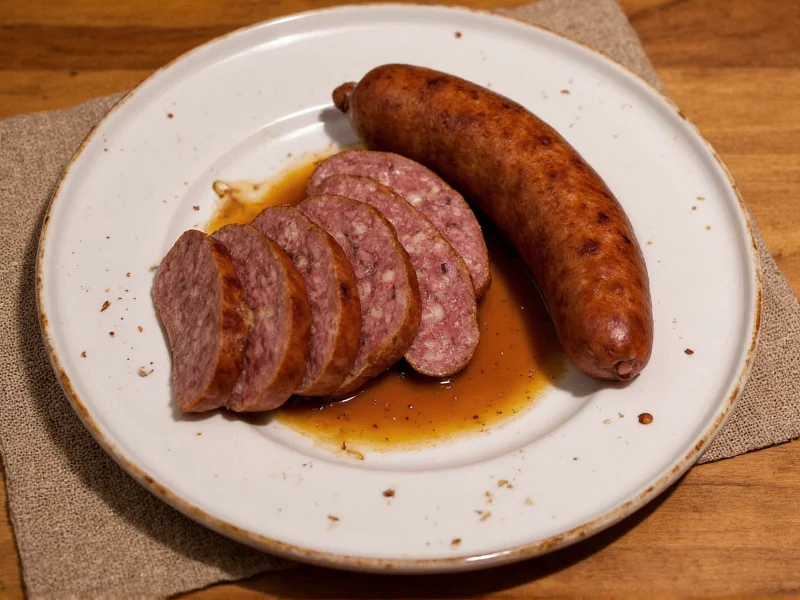Understanding tattoo terminology on competitive shows like Ink Masters requires distinguishing between genuine industry terms and show-specific slang. The 'sausage' reference has become one of the most frequently misunderstood phrases among new tattoo enthusiasts following the popular Paramount Network series.
Origins of the 'Sausage' Term in Tattoo Culture
While many assume 'sausage' is exclusive to Ink Masters, this slang actually predates the television show. Professional tattoo artists have used this term for decades to describe the visual effect when ink properly saturates curved body areas like arms, legs, and ribs. When executed correctly, the ink appears plump and rounded—similar to links in a sausage chain.
On Ink Masters, judges frequently use this terminology during critiques to assess whether contestants achieved proper ink saturation in challenging anatomical zones. The show amplified awareness of this industry jargon, leading to widespread curiosity about what sausage means in ink masters context among casual viewers.
Actual Technique vs. Common Misconceptions
Many viewers mistakenly believe 'sausage' refers to:
- A specific tattoo machine or needle configuration
- A particular style of tattooing
- An actual food-related challenge on the show
None of these assumptions are correct. The term specifically describes the visual result of proper ink saturation in curved areas. When judges comment that a tattoo 'needs more sausage,' they're indicating insufficient ink density in those rounded sections.
| Actual Industry Term | Common Viewer Misconception | Reality |
|---|---|---|
| 'Sausage' (visual effect of proper saturation) | Specific tattoo technique | Natural result of correct needle depth and speed |
| Refers to ink behavior in curved areas | Refers to a particular body part | Applies to any rounded anatomical zone |
| Industry-standard visual assessment | TV show invention | Term existed long before Ink Masters |
Why Proper 'Sausage' Matters in Professional Tattooing
From a technical perspective, achieving proper 'sausage' demonstrates an artist's mastery of several critical elements:
- Needle depth control - Maintaining consistent penetration through curved surfaces
- Machine speed adjustment - Modifying speed for optimal ink deposition on rounded areas
- Visual assessment skills - Recognizing when ink saturation reaches the ideal plump appearance
- Anatomical knowledge - Understanding how skin behaves differently on curved versus flat surfaces
On Ink Masters, contestants who fail to achieve proper 'sausage' often receive lower scores because their work appears patchy or uneven when viewed from different angles—a critical flaw in professional tattooing where three-dimensional presentation matters.
Distinguishing Reality TV from Real-World Tattoo Practice
While Ink Masters has educated millions about tattoo terminology like ink masters sausage tattoo technique, viewers should recognize certain show-specific elements:
- The accelerated timeline compresses what would normally be multi-session work into single challenges
- Camera angles and lighting enhance visual effects that might be less pronounced in person
- Judges sometimes simplify technical explanations for television audiences
Professional tattoo artists emphasize that real-world application requires more nuance than television can convey. The 'sausage' effect remains a valid assessment tool, but its television presentation sometimes oversimplifies the complex skill required to achieve consistent results across diverse body types and skin conditions.
Learning Proper Tattoo Techniques Beyond Television
For those genuinely interested in understanding tattoo terminology like sausage tattoo meaning ink masters within professional context, consider these authentic learning paths:
- Apprenticing with established tattoo studios (the traditional industry pathway)
- Studying anatomy textbooks focused on skin structure and behavior
- Attending professional tattoo conventions with educational components
- Reviewing technical manuals from reputable tattoo equipment manufacturers
Television shows like Ink Masters provide entertainment value and basic terminology exposure, but they cannot replace hands-on training and mentorship required for professional tattoo artistry. Understanding terms like 'sausage' represents just the surface level of tattoo technical knowledge.
What does sausage mean in ink masters tattoo context?
In Ink Masters, 'sausage' refers to the visual effect when ink is properly saturated in curved body areas, creating a plump appearance resembling sausage links. It's industry terminology for correct ink density in anatomical curves that existed before the TV show popularized it.
Is sausage an actual tattoo technique or just TV slang?
Sausage is genuine tattoo industry terminology that predates Ink Masters. Professional tattoo artists have used this term for decades to describe the visual result of proper ink saturation in curved areas. The show didn't invent the term but significantly increased public awareness of this professional assessment method.
Why do Ink Masters judges focus on sausage in their critiques?
Judges focus on 'sausage' because it demonstrates an artist's technical skill in maintaining consistent ink saturation across curved body areas. Proper sausage indicates correct needle depth, machine speed, and visual assessment abilities—critical components of professional tattooing that affect how the tattoo appears from different angles and over time.
Can sausage effect be achieved on all body parts?
The sausage effect primarily appears in naturally curved anatomical zones like arms, legs, ribs, and shoulders. It's less relevant on flat surfaces like the chest or back. Professional tattoo artists adjust their technique based on each body area's curvature to achieve consistent saturation without overworking the skin.
How can I learn proper sausage technique as a tattoo artist?
Learning proper saturation techniques requires hands-on training through a formal tattoo apprenticeship. Study skin anatomy, practice on synthetic skin and eventually live models under supervision, and seek feedback from experienced artists. Understanding the 'sausage' visual cue comes with developing the muscle memory and visual assessment skills that only consistent practice provides.











 浙公网安备
33010002000092号
浙公网安备
33010002000092号 浙B2-20120091-4
浙B2-20120091-4